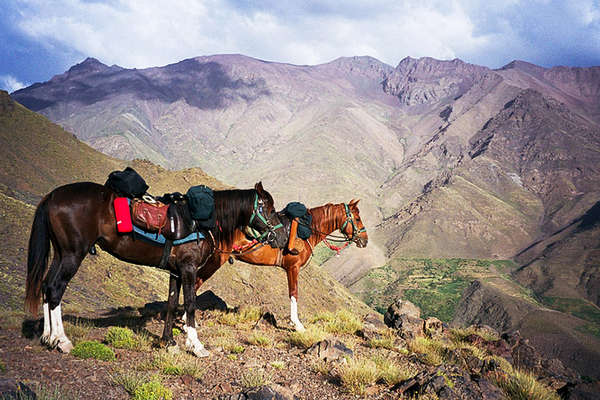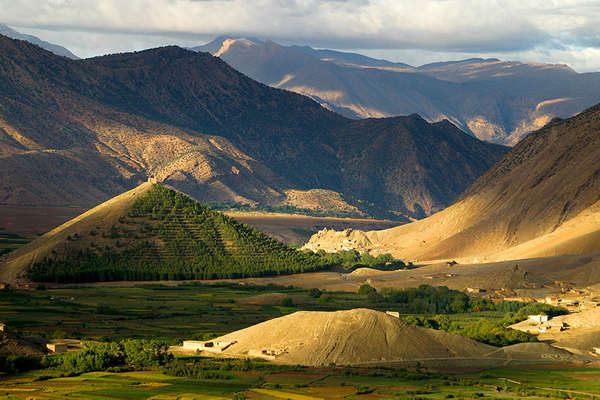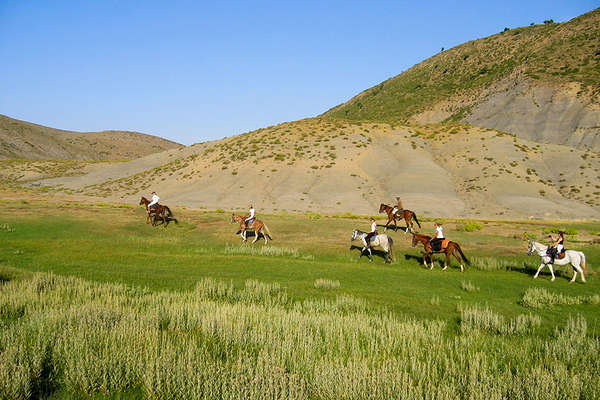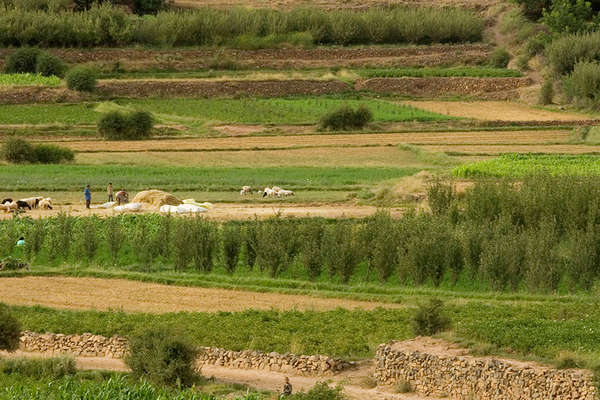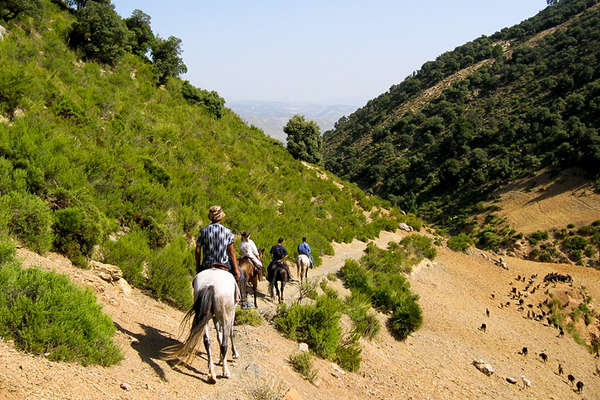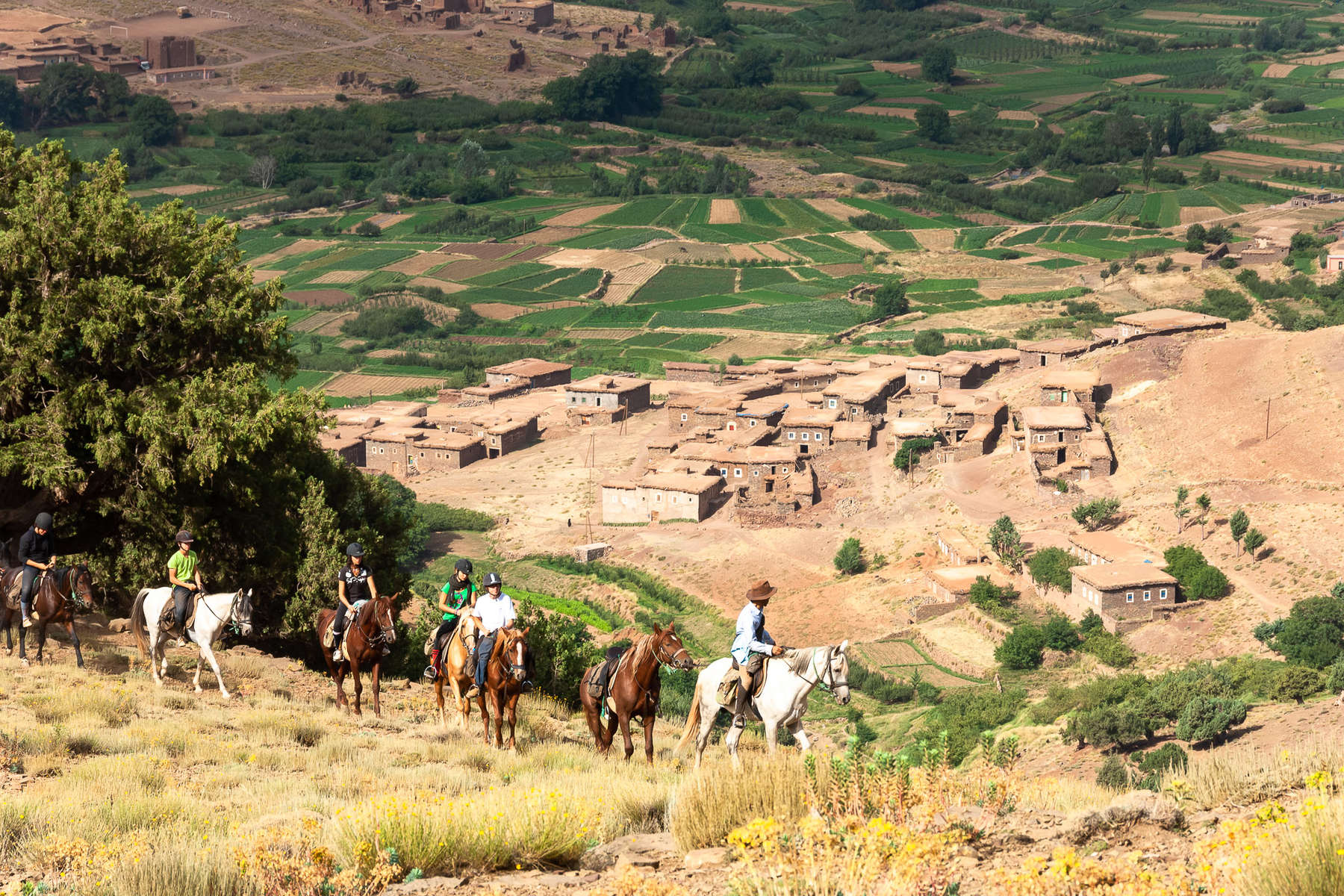
Itinerary
Highlights
- Traditional architecture of the kasbahs (fortified buildings) and ksours (castles), amongst the most beautiful in Morocco
- Experience traditional Berber culture, villages and rose essence industry.
- Ride traditional Moroccan Barb and Arabian stallions which are well schooled and well balanced.
- High level of service whilst camping during the ride
Dates & prices
Price details
- Rates are per person, based on two riders sharing a twin/double room or tent.
- Groups are composed of a minimum of 3 international riders and a maximum of 10 riders, plus guides.
- This ride will also confirm for 2 riders on payment of a supplement of €435 / £380 / $505. Once the group has reached three people, we will remove this supplement from your invoice and refund you if you have already paid it.
- There is no single supplement if you are willing to share a room/tent with another guest of the same sex. To guarantee your own room/tent there is a single supplement of €150 / £130 / $175 per person.
- Transfers are included to and from Ouarzazate airport on the first and last day.
- Alternatively, you can transfer from Marrakesh airport on payment of an additional transfer charge. This is €150 for the vehicle each way and is payable locally and split between the number of people sharing the transfer. If flying into Marrakesh your flight must arrive before 15:30 on day 1 and leave after 14:00 on Day 8.
- Certain diets may incur a supplement (gluten-free diets can usually be accommodated at a supplementary charge of €100 / £90 / $110 if you require specific gluten-free supplements). All dietary requirements must be specified at the time of booking.
Please Note
The itinerary may be modified at anytime for security reasons, meteorological or events beyond our control such as blocked roads, rivers in flood, drought, strikes and local holidays. Equus Journeys, our local partners and their local guides will always strive to find the best solution and will alter the itinerary as needed.
The names of the hotels and accommodation are given for information only and depending on availability, they may be modified without notice and replaced by another of a similar standard.
Price includes
Support Team
1 groom
Logistic
1 cook
1 horse equipped with saddle and bridle per rider
Inland transports
Private bus or Landrover
Accommodation
2 person tents and foam mattress
Meals
Full board from dinner on day 1 to breakfast on day 8
Additional equipment
Price doesn't include
Meals
Lunches not included on day 1 and day 8 depending on your departure time
Transports
Extra
Insurance
Optional
Accommodation
Transport
Equestrian info
Horses
Guide & local team
Minimum riding ability
Minimum riding ability
Please note that the horses are only c. 15hh so if you weigh over 90kg or are taller than 6ft 5inches then please contact us before booking so that we can check there is a suitable mount for you.
Pace
Please note that canters are always in single file due to the fact you are riding stallions.
Tacking ability and participation
Trip conditions and Requested experience
Having previous experience of riding a trail of several days would be an advantage but it is not compulsory. Guests who do not ride regularly are requested to get fit prior to the ride. It is of particular importance to ensure you are comfortable and balanced when riding at speed across rough terrain and open spaces. You also need to be fit enough to walk on foot and lead your horse in the mountains.
Visiting a new country offers the opportunity to meet other cultures with different mentalities, therefore it is important to accept these differences and respect the local way of life.
Equestrian equipment
Saddlebags are provided.
We recommend our riders to wear a helmet to the correct standard and you should bring your own to ensure a proper fit.
Travel info
Comfort
Whilst camping, you stay in two person tents with mattresses (you must bring your own sleeping bag). There is a communal tent for dining, a shower tent with hot water (morning/evening) and a toilet tent.
Meals
Water is provided but you should bring your own bottle.
Special diets can be accommodated, however please note that some foods can be difficult to find in Morocco. Certain diets may incur a supplement (gluten-free diets can be accommodated at a supplementary charge of €100/£90/$110 for instance, if you require specific gluten-free supplements). All dietary requirements must be specified at the time of booking.
Climate
During the summer months the mountains offer a good alternative to the heat of the desert or Marrakech. The nights are cool without being cold (9-14c depending on altitude) and the days are usually sunny with temperatures around 25c. In short, the climate is ideal from May to September, with temperatures dropping in March/April and October.
Marrakech has a Mediterranean climate which is usually hot summers and a clear blue sky, with cold winters. The best season to visit this city is Spring/Autumn when the temperatures are pleasant all day (22-30c).
Tips
Packing list
-Equus Journeys strongly recommend that you wear a riding helmet and that you take your own to ensure a correct fit.
-Sunhat for when not riding
- Sunglasses - with a cord attached so they don't fly off when riding
- Buff or bandana
Upper body
- Long sleeved shirts provide protection from the sun and dust
- T-shirts
- Fleece, jumper or jacket - the evenings can be cold
- Waterproof jacket - the rains can be difficult to foresee and it's better to be prepared. Layering is key to cope with the fluctuations in temperature between day and night
- Casual clothes for the evening
Legs
- Lightweight, comfortable riding trousers or jodhpurs - we recommend riding in them at home before taking them on holiday to ensure they don't rub
- Shorts for lazy lunchtimes
- Casual clothes for the evening
Hands and Feet
- Comfortable riding boots. We recommend short boots with half chaps as long chaps/long boots can get very hot.
- Sandals, flip-flops or trainers for moving around the camp
- Gloves - your hands are particularly exposed to the sun whilst riding
Nightwear
- Thermals are a good option for sleeping in, or a t-shirt and shorts for warmer nights
- A woolly hat when camping (desert nights can be cold)
- Sleeping bag - we recommend a comfort factor of 2-5c (Oct-Nov and Feb-April) and minus 5 - minus 8 for Dec/Jan. We also recommend taking a silk or fleece liner for an extra layer
Our Recommendations
- Please don't take a hard sided suitcase. Your luggage should be soft sided and you should pack it into two bags if it weighs more than 15kg so it's easier for the team to transport between camps
- Take a second, smaller bag to pack things you may need during the day such as a book or suncream then you can easily access it during the long lunch break
- We recommend travelling in your riding boots and carrying your hat and some riding clothes in your hand luggage - then if your luggage goes astray you are still able to ride!
Other useful items
- Swimsuit
- Towel. Camping towels will pack lighter and dry more easily
- Sarong (for going to/from the shower tent)
- Water bottle (1.5 litre or two x 1 litre)
- Hand sanitiser
- Wet wipes for when showers aren't possible
- Camera and high capacity memory card. Spare battery
- Bumbag for carrying your camera and small items whilst riding
- Headtorch or small torch for moving around camp at night
- Toilet paper and small plastic bags for taking rubbish away
In your luggage
- Any liquids, such as shampoo, moisturiser, deodorant unless they are less than 100ml and all bottles can fit in a small, clear, plastic ziplock bag.
- Small penknife
In your hand luggage
- Any valuables, such as your camera, ipod, ipad etc.
- Your riding hat
Medical kit
- Sunscreen and lip balm - must be high factor
- Insect repellent
- Any medication you regularly take
- Blister plasters in case of any rubs
- Antiseptic cream, plasters, aspirin, anti-histamine, insect-bite salve etc...
- Rehydration sachets (dioralyte or similar)
- Spare prescription glasses/contact lenses
- Ear plugs, particularly if you are a light sleeper
- Micropur or similar water purification tablets
Sustainable tourism
- Travel light. It's a little known fact, but the lighter you pack, the better for the environment as heavy bags will produce higher emissions (when flying a plane or driving a car!).
- Reduce plastic waste. Take your favorite reusable bottle with you. Avoid single-use bags, cups, or straws.
- Preserve nature. Always take your rubbish with you during the ride and recycle them. Leave all the flowers or plants as you found them, and never get too close when observing wildlife. Make sure to use eco-friendly products such as body wash or laundry detergent (if camping) to protect both your skin and the environment.
- Choose your experiences carefully. Respect animal life by not participating in any activities that abuse wild animals (shows, elephant rides, etc.).
- Support local populations. Buy local handicrafts, be respectful of customs, and learn about the culture of local communities.
- Share! Raise awareness among your family and friends about sustainable tourism.
Did you know?
Did you know?
This Moroccan horseback trail ride takes you into the "Valley of the Roses".
Deep in the Dades valley is the fortified village of Kelaat M'Gouna which is considered to be the Moroccan capital of the rose. Each year in early May the region celebrates their rose production with a festival including displays of Berber dancing, sword fighting and singing, as well as the coronation of a Rose Queen in a packed open-air stadium.
During the Rose festival there are many hundreds of stalls, selling a dazzling array of rose buds, gels, creams and oils as well as silver jewellery and babouche slippers. There are permanent Boutiques des Roses as well, so the products can be bought year round.
The rose petals are distilled for their sweet-scented oil, a teaspoon of which can cost £70. This valuable oil is a key ingredient in many perfumes the world over. The small damask buds are dried for use in cosmetics and home deoration.

